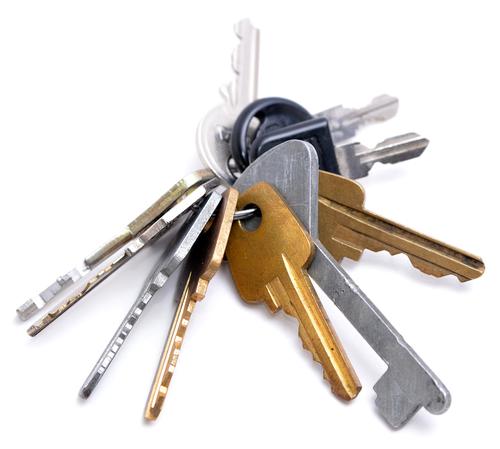It's likely that everyone has experienced it — you're ready to go somewhere or do something, but you can't because you can't find your keys, or your purse, or that special screwdriver for that weird set of screws. This is something that seems to happen more often as we age — but of course, as we age we tend to have more stuff to lose. So apart from having extra sets of everything to forestall the hide and seek situation, what can one do?
One thing to do is to optimize the search strategy. A group of researchers, led by Dr. Anna Nowakowska from the University of Aberdeen, Scotland, investigated human foraging behavior — what we do when searching for misplaced items. Their report was published in the Proceedings of the Royal Society B.
By tracking people's eye movements, they determined that people's search strategies were far from ideal. For example, when given a choice between a cluttered or clear area to search for a missing item, they tended to spend more time looking at the clear area (such as the top of a clean desk} than examining a cluttered area (like the top of my desk). That result seems counterintuitive because while it would be easier to find a lost item in a clean area, a quick glance should tell you whether or not your search object was there. And of course we all recall the story about the drunk searching for his keys not by the bar but under the street light 40 feet away, since the light was better there.
A recent article in The New York Times provides a number of suggestions on how to avoid the 'now where did I put them' trap. They can be summarized as follows:
- Put your losables in the same place all the time: e.g. car keys go in that basket by the front door, keep your reading glasses near the chair where you like to read
- Be systematic in your searching — go through one room at a time, and be thorough about it
- As the Scottish researchers' data warn, don't focus on the obviously clear areas — head for the cluttered desk
- Retrace your steps — where were you and what were you doing the last time you used whatever it is you're looking for?
- Finally, if all else fails, in this digital age there are apps for your smartphone that let you track your most important or most often lost items.
So, in the interest of public mental health, we hope these tips save both time and frustration.




